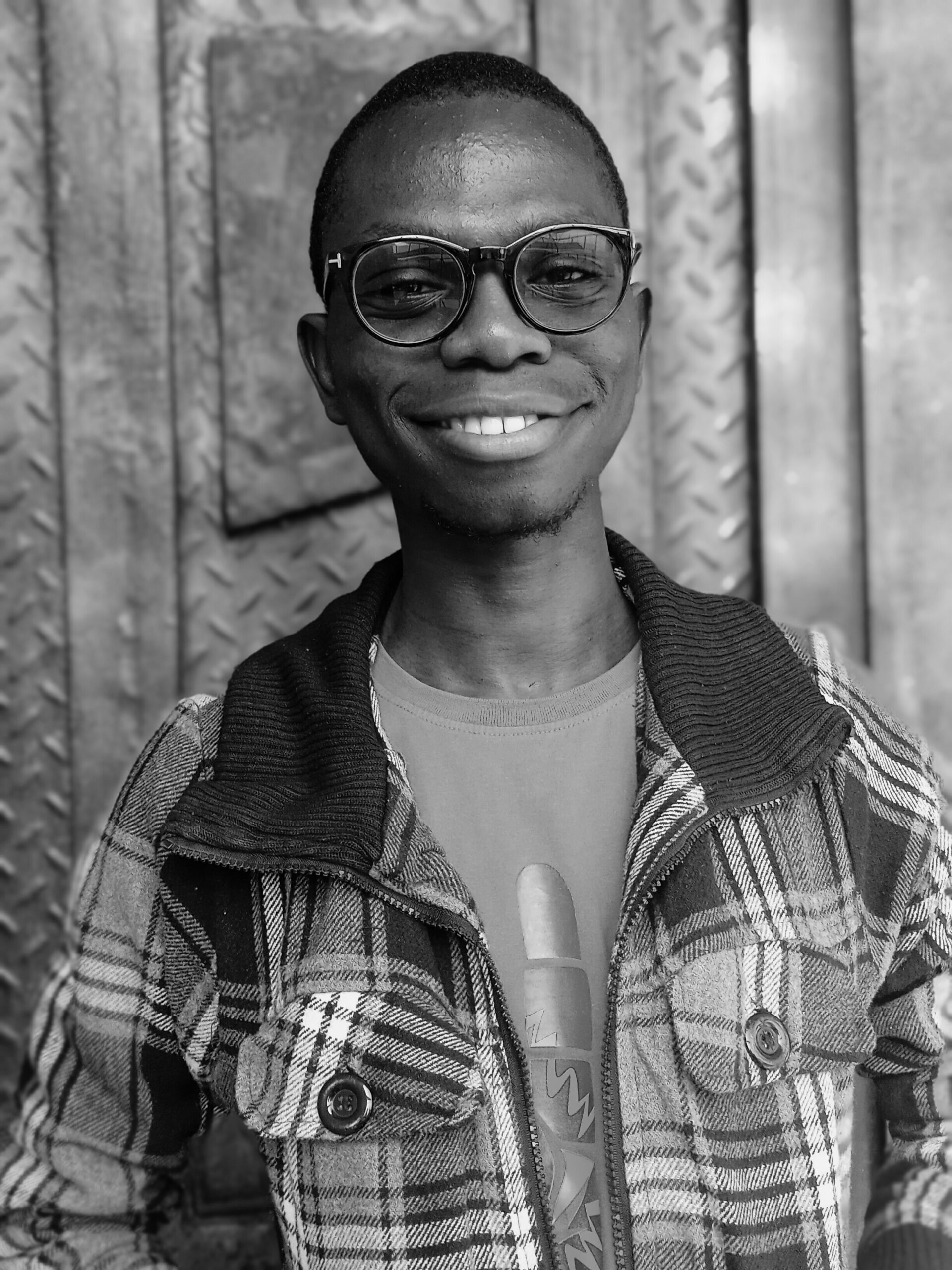poetry column
Believer’s Hymn
after Samuel Adeyemi’s Desist Hymn
By David Solomon
Mouthless god or godless mouth?
my mouth opens in search of what has
not deserted me:
soft dust curls out like hang ropes.
when i was a child,
mother lapped an old bible over the white sheets
that covered her cancer.
she spread it so gently, as if it was what was left
of her life.
do you not know that your body is God’s temple?…
she chokes with cough,
puncturing my temple. God seeping out like
fisted sand.
I swear mother, I am not blasphemous.
prayers cascade my lips
just as you thought me but god falls out instead.
as if my body
is not soil enough for faith. for without faith,
it is impossible to please God.
two years after my mother transcended, i add a flower to the cross above
her head and ask God for a sign that He is still alive.
The next week, Amina gets a flower, too.
will you blame a boy?—a manifesting gentile.
I had emptied jar after jar
of the bible—God’s word— into my sister’s
body. jars that God collected.
and stored for me. with every new age, He pours those words as miracles.
He washes my feet with oil. I have seen God
in the dreams about
my mother. I see Him as white sheets, His mouth—
the bible talking to her.
talking to me. I see Him in the visions of Amina rushing through hospital
doors, angels sprouting from her chin.
Is today, the day you have made? Shall i rejoice and
be glad in it?
Mouthless god? godless mouth?
even the the white dust
that left my mouth, I now see God inscribed on it.
BIO:
David Solomon is a Nigerian poet and student of Human Anatomy in the university of Maiduguri. He is passionate about all things art and stans Ocean Vuong. His works have appeared or are forthcoming in various magazines, including; Kalahari Review, African Writers, MadSwirl and others. He tweets @Hena_David_S.
poetry column
Lances at the hedges of light

By Samuel A. Betiku
With Nigeria’s economy and poverty levels worsening, abductions have become an almost daily occurrence in recent years — Reuters
Until now, you savoured the world in packets of myth, moon-
lit frolic and a cot where the soft ripple of praise succeeds the rooster’s
call and the amber flush of afterglow. What did you know of a country
flailing outside the stained glasses of your eyes, eyes your mother looked into
to relearn the curves of a hymn: what did you know of being a prey
or of a complicit knot of trees and underbrush lining a dire trail,
blanketing the gleam of tomorrow. You watch your friends trudge on,
each laboured step a prayer no one dares to say out loud. When you open
your mouths, it is to let out a wisp of stifled cry, to risk the gruff nudge
of a gun. At the end of the road, your plundered selves waiting, inescapable.
What can you give to stay a haloed house? You look down at your feet
crusted with crimson and grit and imagine your mother sitting outside
the shed, the quiet sob of petition, the drooped heft of her brow, barely able
to stare at a sky spangled with lights closer to home than her daughter.
BIO:
Samuel A. Betiku is a Nigerian writer from the city of Ondo, South West Nigeria. His works have appeared in journals and anthologies, including Rattle, The Offing, Frontier poetry, The Temz Review, Trampset, The Christian Century, Strange Horizons, Agbowó, The Deadlands, and elsewhere.
poetry column
The Knowledge


By Kei Vough Korede
In a dream, two bars of soap
Were handed to me—
One containing melancholy.
The other, mirth.
A voice instructed me to give
The former to my father and keep
The latter for myself.
I broke each bar into half
And handed a half of each soap to my father:
His pain is my pain. My joy is his joy.
BIO:
Kei Vough Korede, he/they, poet, fashion and mustache enthusiast. He works on his manuscript Oral History. Flirt with him on Twitter @theDilatedSoul
poetry column
I die like waves


By Daniel Orisaeke
On the shoreline, I watch
the sun—a halved-cut lemon
dip into the sea,
language written
in the dance of waves
there is a pull and I succumb.
The man beside me murmurs a few words
about dying.
Iniquities,
like beads, jut out from my pores
before hands
drown me into a sea of lemonade.
I die like the waves.
A bitter-sweet enveloping—opaque & quiet
there is a pain before I see black.
I wonder if my tears segregate,
seeking absolution.
I resurrect a new creature—made whole
but the sourness lingers.
BIO:
Daniel Orisaeke (he/him) is a poet and a dental student in the University of Nigeria, Enugu. Twitter handle: @dannie_bry
-
Finance3 months ago
Court orders Sen. Victor Umeh to repay N136m bank debt to AMCON
-



 Abuja Update2 months ago
Abuja Update2 months agoUNDP, FG partnership needed to achieve inclusion, equity- Minister
-
Abuja Update3 weeks ago
Banks drive stock market performance with N147bn gain
-



 Infotech2 weeks ago
Infotech2 weeks agoWorld Backup Day: NITDA urges Nigerians to ensure backup of data
-
capital market2 years ago
Rt.briscoe, FBNH, Others halts negative performance of stock market
-



 Health2 weeks ago
Health2 weeks agoImmunisation: FG, GAVI seek synergy with Sokoto Govt.
-
Submission Guidelines3 months ago
CALL FOR SUBMISSIONS: POETRY COLUMN-NND
-
Infotech1 week ago
Forex for Beginners: Unveiling the currency exchange and how to trade it




